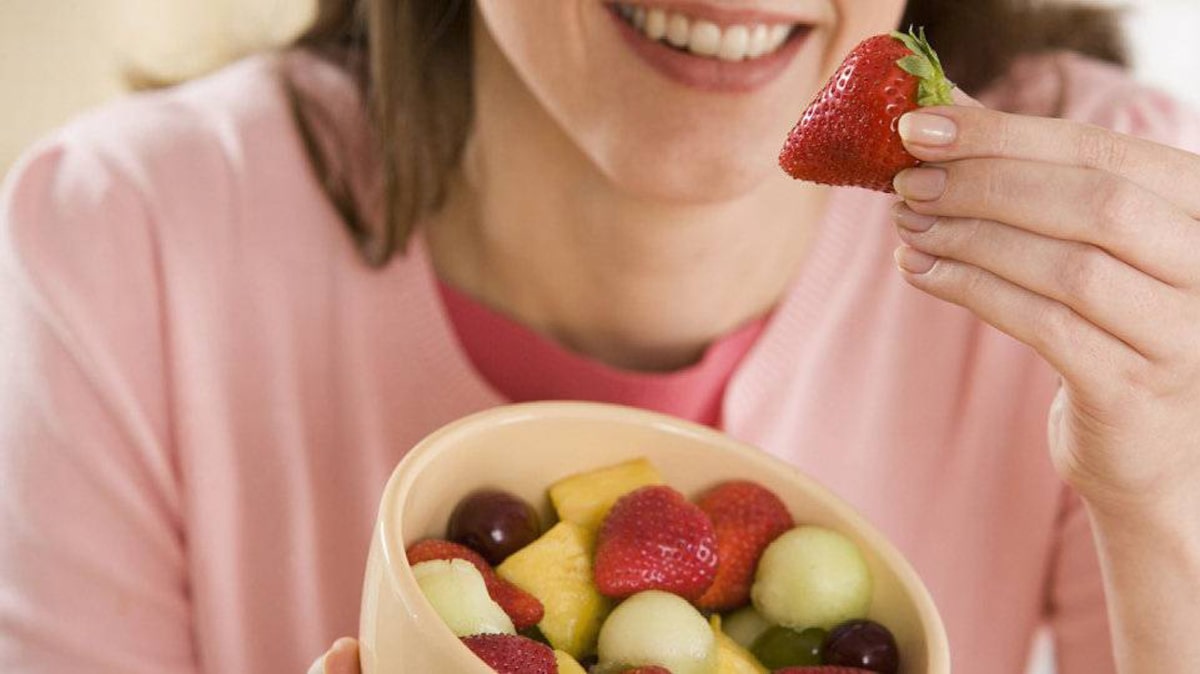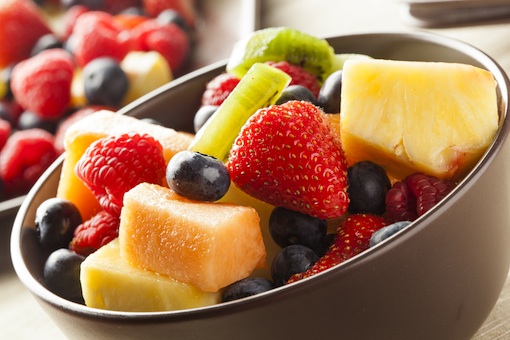When you’re on a weight loss journey, making the right food choices is key. Fruits are often seen as the healthy go-to snack, but did you know some fruits can actually hinder your progress? You might be wondering, “Which fruits are best for weight loss?” or even “Can some fruits actually make me gain weight?” Well, not all fruits are created equal, and some have more sugar and calories than others. While they may be nutritious, certain fruits can make it harder to lose those extra pounds.
In this article, we’ll explore the worst fruits for weight loss. We’ll break down why some fruits are better avoided or eaten in moderation, and we’ll provide tips on how to enjoy fruits while still working towards your goals. Let’s dive in and uncover the fruits that might not be helping you shed those pounds!

Why Some Fruits Are Bad for Weight Loss
Before we get into the specifics, it’s important to understand why some fruits might not be ideal when you’re trying to lose weight. Here’s why:
-
High in Natural Sugars: While fruits are generally healthier than processed snacks, some fruits are packed with natural sugars. These sugars can add up quickly and spike your blood sugar levels, which can lead to fat storage instead of fat burning.
-
High in Calories: Certain fruits are more calorie-dense than others, meaning you might be consuming more calories than you think by eating them regularly.
-
Low in Fiber: Fiber helps you feel full and satisfied. Fruits that lack fiber can leave you feeling hungry sooner, which might lead to overeating later on.
-
Can Trigger Cravings: Some fruits, especially those with high sugar content, can increase your cravings for more sugary or unhealthy foods. This can hinder your progress toward weight loss.
With these factors in mind, let’s take a closer look at the worst fruits for weight loss.
The Worst Fruits for Weight Loss
1. Bananas
Bananas are often touted as a healthy snack, and while they do offer beneficial nutrients like potassium and fiber, they are also relatively high in calories and sugar. One medium banana contains around 105 calories and 27 grams of carbs, including 14 grams of sugar. This makes bananas one of the more calorie-dense fruits.
Why They’re Not Great for Weight Loss:
-
High in sugar and carbs
-
Calorie-dense (105 calories per medium banana)
-
Can spike blood sugar levels
How to Enjoy Them: If you love bananas, try to limit your intake to half a banana per snack or combine them with a protein source (like peanut butter or yogurt) to reduce the sugar spike.
2. Mangoes
Mangoes are delicious and packed with vitamin C, but they are also one of the highest-calorie fruits. One medium mango can contain around 150 calories and 46 grams of sugar, which is a significant amount for anyone trying to control their caloric intake.
Why They’re Not Great for Weight Loss:
-
Extremely high in sugar (46 grams per medium mango)
-
High in calories (about 150 calories per mango)
-
Can lead to sugar crashes and hunger
How to Enjoy Them: Mangoes are best enjoyed in moderation. Consider limiting your portion size and pairing them with a high-fiber fruit like berries to help curb your cravings.
3. Grapes
Grapes are another fruit that can sneak in extra calories without you even realizing it. Although they’re small, they’re packed with natural sugars. A cup of grapes can contain around 100 calories and 23 grams of sugar. Because they’re small and easy to eat in large quantities, they can easily lead to overeating.
Why They’re Not Great for Weight Loss:
-
High in sugar (23 grams per cup)
-
Easy to eat in large quantities
-
Calorie-dense for their size
How to Enjoy Them: Try eating grapes in moderation and pair them with a source of protein or healthy fats to balance out the sugar intake.
4. Cherries
Cherries may seem like a small, innocent fruit, but they are surprisingly high in sugar. One cup of cherries contains around 90 calories and 18 grams of sugar. While they do provide antioxidants, their high sugar content can slow down weight loss if eaten in excess.
Why They’re Not Great for Weight Loss:
-
High in sugar (18 grams per cup)
-
Calorie-dense for their small size
-
Can lead to insulin spikes and increased cravings
How to Enjoy Them: Cherries can be eaten as an occasional treat, but they should be limited if you’re trying to lose weight. Consider enjoying them mixed with lower-sugar fruits like strawberries or raspberries.

5. Figs
Figs are a nutrient-dense fruit, rich in fiber, potassium, and antioxidants. However, they are also very high in sugar and calories. One medium fig contains about 37 calories and 9 grams of sugar, and a handful can add up quickly in terms of calorie intake.
Why They’re Not Great for Weight Loss:
-
High in sugar (9 grams per medium fig)
-
High in calories for their size
-
Can be easy to overeat, especially in dried form
How to Enjoy Them: If you enjoy figs, opt for fresh figs over dried ones, as dried figs contain even more concentrated sugar and calories. Enjoy them in moderation as part of a balanced meal.
6. Pomegranates
Pomegranates are often praised for their health benefits, including antioxidants and vitamin C. However, they are high in natural sugars. One medium pomegranate can have around 130 calories and 30 grams of sugar, making it quite calorie-dense.
Why They’re Not Great for Weight Loss:
-
High in sugar (30 grams per pomegranate)
-
Calorie-dense for their size
-
Can cause blood sugar spikes
How to Enjoy Them: Pomegranates are best enjoyed in moderation. Stick to smaller portions or mix them with lower-calorie fruits to balance out the sugar content.
7. Coconut (Fresh or Dried)
Coconut, whether fresh or dried, is another fruit that can be tricky for weight loss. Fresh coconut has a high fat content, and dried coconut is often calorie-dense. A small handful of dried coconut can contain around 200 calories, and it’s easy to overeat due to its rich flavor.
Why They’re Not Great for Weight Loss:
-
High in fat and calories (200 calories per small handful of dried coconut)
-
High in sugar in its dried form
-
Calorie-dense for small servings
How to Enjoy Them: If you enjoy coconut, stick with fresh coconut and eat it in moderation. Avoid dried coconut unless it’s unsweetened, and be cautious about portion sizes.
FAQ: Worst Fruits for Weight Loss
1. What fruit should I avoid while trying to lose weight?
You should avoid fruits that are high in sugar and calories, such as bananas, mangoes, grapes, figs, and pomegranates. These fruits can add unnecessary calories to your diet and hinder weight loss if eaten in large quantities.
2. Are there any fruits that actually make you gain weight?
While no fruit will directly cause weight gain, fruits that are high in sugar and calories, like bananas, mangoes, and grapes, can contribute to an excess calorie intake if eaten in large amounts, which may make it harder to lose weight.
3. Can I eat bananas on a weight loss diet?
Bananas are high in sugar and calories compared to other fruits, so it’s best to eat them in moderation. A small banana can be part of a healthy diet, but consuming too many can add excess calories that hinder weight loss.
4. What are some low-calorie fruits I should eat instead?
Some excellent low-calorie fruits for weight loss include berries (strawberries, raspberries, blackberries), watermelon, grapefruit, and kiwi. These fruits are low in calories and high in fiber, making them perfect for weight loss.
5. Can dried fruits be harmful for weight loss?
Yes, dried fruits are often more calorie-dense and have concentrated sugars, making them less ideal for weight loss. They can quickly add up in calories, so it’s best to limit your intake of dried fruits like raisins, dried figs, and dates.
Make Smart Fruit Choices for Weight Loss
While fruits are an essential part of a healthy diet, some can hinder your weight loss goals due to their high sugar and calorie content. By avoiding or limiting fruits like bananas, mangoes, and grapes, and opting for lower-calorie options such as berries, watermelon, and grapefruit, you can stay on track with your weight loss journey.
Remember, moderation is key. Fruits can still be part of a healthy, balanced diet, but choosing the right ones and controlling portion sizes will help you achieve the results you’re aiming for.